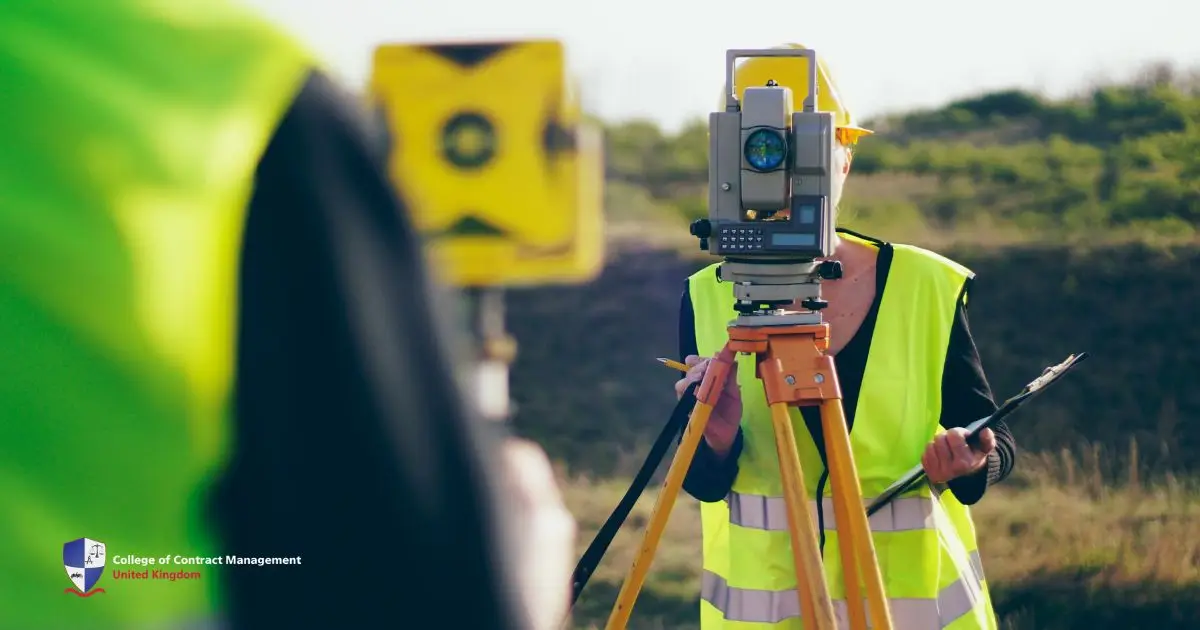A surveyor directs construction and development projects. They give professional advice on matters like the structural integrity of a property or its value. They receive excellent pay, benefits, and job prospects. But just like any other thing, you will receive a greater benefit if you have an accreditation. So, surveyors in the United Kingdom tend to aim to be chartered surveyors because this will give them maximum benefits. This will also let them grow into their highest potential.
But what is a chartered surveyor?
WHAT IS A CHARTERED SURVEYOR?
As stated in the website of RICS which stands for Royal Institute of Chartered Surveyors, being a chartered surveyor means that you are a surveyor who gained and unfailingly demonstrates a high level of skill or competence in your field of work. This also means that you are recognised by the award of formal accreditation from RICS.
This could also mean that you are globally recognised as an expert who can give the highest level of advice within their sector and with 22 different specialisms, also known as sector pathways. You are also included in a range of projects. You are recognised for your expertise and compliance with ethical standards. To add, you are seen as having greater professional credibility and responsibility compared to non-chartered ones.
But, it is not easy to become a chartered surveyor. There are a lot of things that you need to comply with for you to become one. You need to face a lot of additional training and certifications. As well as be recognised for your specialised skills and ethical practises.
With this being said, all chartered surveyors are surveyors. However, not all surveyors have reached the chartered status. But, a lot of surveyors want to achieve it.
But why do surveyors want to become a chartered surveyor?
WHY BECOME A CHARTERED SURVEYOR?
Higher credentials lead to higher benefits. Becoming a chartered surveyor in the UK offers key benefits and prospects making it a worthwhile career progress for surveyors. Here are some reasons why a lot of surveyors aim to become a chartered surveyor:
1. Professional Recognition and Credibility
Gaining chartered status with RICS can mean that you have met the highest professional standards in the surveying industry. It enhances your credibility and sets you apart as an expert. Clients trust chartered surveyors due to their proven competence and compliance with ethical standards. So, being a chartered surveyor can mean that you'll be recognised as someone competent in the field you are in. This will then enhance your status in terms of career.
2. Better Career Opportunities
A lot of clients prefer chartered surveyors compared to non-chartered ones. Thus, you are one step ahead in terms of career prospects. By being a chartered surveyor, clients will most likely choose you to lead complex projects. This will boost your chances for promotions and leadership positions. Once you become a chartered surveyor, you will have a lot of job prospects knocking on your door.
3. Higher Earning Potential
The higher the credential, the higher the wage. Your education, training, and certifications will not go to waste. This is because you will get back all the benefits in your wage. Due to your higher level of skill, experience, and responsibility required, chartered surveyors have higher pay than non-chartered ones. This makes you more valuable to clients and employers.
As stated on the RICS website, the average chartered surveyor can earn £23,000 for a newly qualified graduate. You can each reach six figures for an experienced senior role. Chartered surveyors earn on average of £16,000 more than their non-RICS counterparts.
4. Access to High-Profile Projects
High-profile projects pursue surveyors who have proven their competence. Being a chartered surveyor, you will be more exposed to high-profile projects. These include large construction projects, infrastructure developments, and property valuations for high-value assets. By having access to these high-profile projects, you will improve your professional portfolio as well as career satisfaction.
5. Global Recognition
Since RICS accredits you as a chartered surveyor, you will gain exposure to projects beyond the UK. You can also take on projects globally which will improve your odds of working abroad for international companies. This will also lead you to expand your connections considering that you just broaden your scope in your potential clients.
6. Continued Professional Development
As a chartered surveyor, you must continue to grow in your profession. You need to prove that you reached the highest level of credibility by letting yourself learn and develop professionally.
With that being said, chartered surveyors are needed to expand their knowledge through continued professional development (CPD). This will help them keep their skills up-to-date and relevant to industry advancements.
With all these responsibilities, some do not have the time to enrol themselves in courses that will make them grow as a chartered surveyor. But, here’s some good news!
Here at the College of Contract Management, we are offering continued professional development (CPD) courses with just one click away! We prioritise our clients’ professional lives thus we are available online. This allows them to manage their busy schedule and access us during their most convenient time.
We believe that learning is a lifelong process and it should be accessed anywhere and anytime. The CCM UK offer a lot of CPD courses online! May it be from Construction Risk Management to Sustainable Construction, and even Health, Safety, and CDM Regulation.
With all these advantages, it is comprehensible that surveyors would want to become a chartered surveyor. But, being a chartered surveyor needs some credentials to become one.
So, how does one become a chartered surveyor?
HOW TO BECOME A CHARTERED SURVEYOR?
To qualify, one must pass the RICS Assessment of Professional Competence (APC). Taking the test will let the RICS assess whether you have the mixture of academic and professional qualifications as well as the skills and levels of competence that they are looking for in a chartered surveyor.
The requirements for taking the APC are:
-
- If you have a RICS Accredited Degree
You need to at least complete 24 months of structured training. As well as, a minimum of 96 hours of Continuing Professional Development (CPD)
- If you have a RICS Accredited Degree
-
- If you have a RICS Accredited Degree with a minimum of 5 years of relevant experience
You need to at least complete 12 months of structured training and a minimum of 48 hours of CPD.
- If you have a RICS Accredited Degree with a minimum of 5 years of relevant experience
-
- If you have a RICS accredited degree with a minimum of 10 years of relevant experience
You need to demonstrate a minimum of 48 hours of CPD over the preceding 12 months. No structured training period is required.
- If you have a RICS accredited degree with a minimum of 10 years of relevant experience
-
- If you have a Bachelor's degree or higher (or membership of an RICS-approved professional body). With a minimum of 5 years relevant experience (at least 12 months must be post qualification).
You need to complete the preliminary review and a minimum of 48 hours CPD.
- If you have a Bachelor's degree or higher (or membership of an RICS-approved professional body). With a minimum of 5 years relevant experience (at least 12 months must be post qualification).
Taking the APC might be stressful for some. But, do not worry! We, the College of Contract Management, also offer coaching services for you to ace the APC! We have an online course for RICS APC coaching.
Becoming a chartered surveyor offers excellent job prospects, higher earning potential, and global recognition. By achieving chartered status, you set yourself as a trusted expert in the surveying industry. This will open the door to high-profile projects and continued professional growth. So, the path to becoming a chartered surveyor is a worthwhile asset in your future.
What are you waiting for? Optimise your career today with the College of Contract Management! Pursue chartered status and unlock your full potential as a surveyor!




